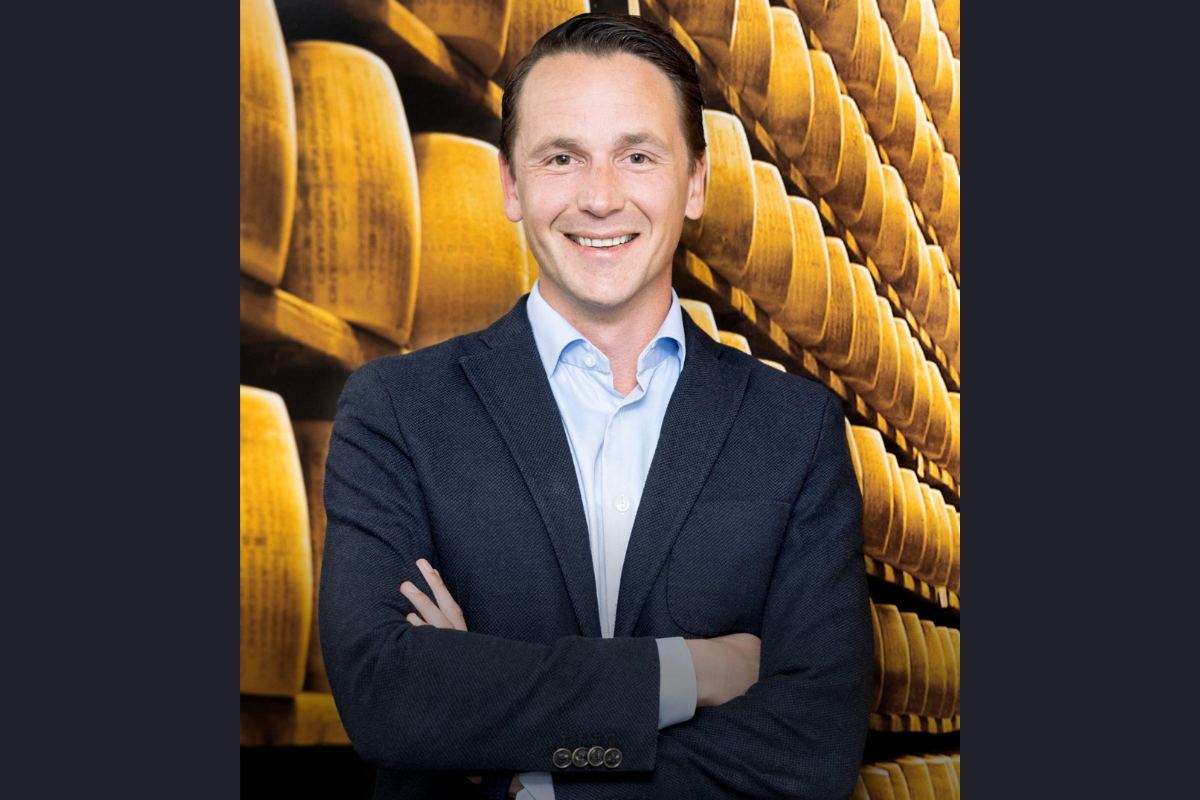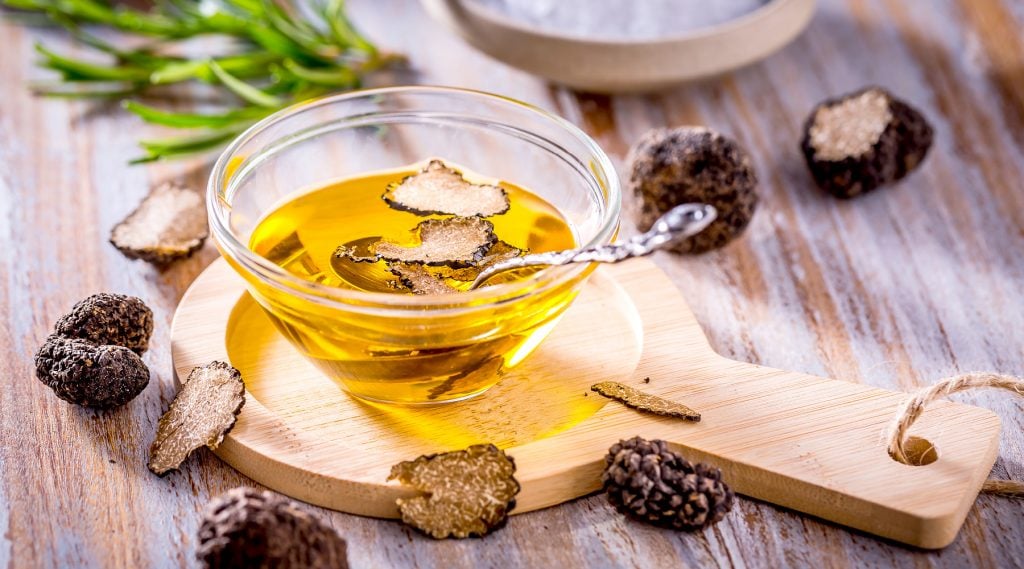A Perfect Pairing: Magnus Glennborn
When Magnus Glennborn came to Australia from Sweden to lead Arla Foods Mayer Australia – a joint venture between Arla Foods and Mayers Fine Food – the Mayer family met the business executive they wanted to take their business forward. Today, he brings the best of the corporate world to the agile, family run food and beverage importer.
Magnus Glennborn heads a company that imports Australia’s preferred international brands such as SanPellegrino, Barilla, illy, LURPAK and Baci, but it seems the Mayers Fine Food CEO’s first name isn’t as widely known by the barista community in his adopted hometown of Sydney. "When I go to order my coffee, I often just tell them my name is Angus," he tells the The CEO Magazine. "They never get it right anyway."

It’s been five years since he landed in Australia after more than a decade with Arla Foods in his native Sweden, Denmark and UAE – the farmer-owned dairy cooperative that is also one of the largest businesses in dairy in the world. He spent his first three years in Australia as General Manager and Managing Director of Arla Foods Mayer Australia, a joint venture between Arla and the family owned Mayers.
"Arla had been working with Mayers for decades and had decided it wanted to get a bit closer to the market, so it approached Mayers to see if it wanted to set up a joint venture," he explains.
Such was the impression that Magnus had made on the Mayer family that three years later, he was invited to take on an executive role at Mayers Fine Food as well. Today, he officially wears two C-suite hats for the Sydney-based business: CEO of Mayers and Managing Director of Arla Foods Mayer Australia.

We had the chance to take the good parts from the corporate and leave untouched what really makes up the heart and soul of Mayers, which is its agility.
Founder Fred Mayer arrived in Australia from Europe in the aftermath of World War II and started F Mayer Imports (as it was known until 2019) from his Bondi garage in 1957. It was built upon the growing appetite of Australian consumers for continental foods and speciality goods. When his sons, Robbie and Sam, joined the family business, the trio progressively expanded it to the large and highly respected company it is now.
The brothers are renowned in the business as hard grafters who always go above and beyond for the company’s customers and suppliers, with Robbie even known to conduct business calls at 3am with European suppliers and Sam opening the doors to the warehouse at 2am. In 2016, the pair received royal recognition for their efforts by being awarded His Royal Highness Prince Henrik of Denmark’s Medal of Honour due to their high commitment to Arla and their initiative to distribute and import Danish products from Arla in Australia.
Today, along with its 13,000-square-metre Sydney facility, the company also has a 22,000-square-metre site in Altona North, Melbourne and imports more than 1,000 products from Europe, North America and the Asia–Pacific region.
Outside in
Sadly, Fred has since passed away but his sons are still very involved in the day-to-day running of Mayers (Robbie is Managing Director and Sam is Non-Executive Director). Magnus acknowledges that it was a "big step for the business to get someone else into it", but the move offered the family a chance to bring an outsider’s perspective to organisational and operational practices.
For Magnus, the two roles are complementary. "I’m working for two businesses, one a big corporate and the other a mid-size family business," he says. "And the opportunity I saw with Mayers was to take some of the processes and the ways of working from the big corporate and implement that there."
Leaving aside the more frustrating aspects of big business, such as complicated corporate processes, or the "time-consuming bureaucracy" as he puts it, Magnus believes Mayers had the advantage of being able to cherry-pick what it wanted to adopt from Arla. "We had the chance to take the good parts from the corporate and leave untouched what really makes up the heart and soul of Mayers, which is its agility," he explains.
At its core though, the appeal is also that Mayers is "a great business that has been growing really well". And while the joint venture had allowed him a first experience working with Mayers, he was also drawn to the opportunity to work with the Mayer family. "The role was appealing and interesting, and presented a different challenge to what I’d been doing before," he says.
A challenging start
A matter of months after Magnus took on his new role in November 2019, the business experienced a significant hit as COVID-19 swept across the world. "Our business is about two-thirds retail and one-third food service," he shares. "Pretty much overnight, 80 per cent of our food service sales disappeared."
We always look for new products because food trends are becoming increasingly global, which is an opportunity for us.
There were other challenges to navigate too. "Being an importer, we obviously keep stock here, usually around three months’ worth, plus stock on the water," he says, estimating five months’ worth of buffer stock in total. "But we no longer had a customer for it."
An extra complication was the perishable nature of its inventory. "We have best before dates after which we can no longer sell the product," he adds. "Ensuring we could move the product was the biggest stress for us."
Then there was a sales organisation configured to serve a market that no longer exists. "We had to make some very tough calls," Magnus admits. "Some people were stood down completely, others partially because as we weren’t allowed to see customers, there simply wasn’t as much work to do."
There were, however, bright spots. "The retail side of our business did really well and compensated for much of the loss we had in food service," he reveals. And despite that uptick not fully bridging the gap in turnover, he says that overall, the business "did OK".
But it was still a tough time. "We had this dynamic where some people in food service were struggling, whereas others in retail were doing really well," he points out.
The unprecedented nature of the crisis called for difficult decisions to be made. "I think if we had faced this a decade ago, our response would have been different," he reflects. "Particularly because we’re a family business of about 200 employees and, unlike a big corporate, we know everyone and we’ve always looked after our people.
"We’ve been tougher this time around, but in hindsight, even though it was hard and we didn’t get it 100 per cent right, overall it worked out well and we managed to provide an adequate service to our customers."
Building blocks
Although the food service division still needs time to recover, Magnus explains that the business is "almost back to a position where we are growing". And while maintaining close the to 10 per cent growth it has recorded for the past 10-plus years is becoming increasingly difficult – "If you look at what that translates to in terms of dollar value, you need to grow quicker and quicker every year," he says – the ambition to keep growing the business is still as strong as ever.
"We want to continue to add to the business in ways that add value to the market," he says, citing the still-fresh agreement with illy to become its Australian agent as an example. Perishable products are of particular focus at the moment. "We’re also more interested in chilled and frozen because we have those capabilities and we’re good at it."
The main priority is continuing to build equity into the brands it represents in the country today. "The most important thing for us is the supply relationships that we already have," he stresses. "We need to do those brands justice before we look at new things."
Yet that’s not to say Magnus and his team don’t have visibility on what is happening in the market around the globe. "We always look for new products because food trends are becoming increasingly global, which is an opportunity for us. These trends are also changing at a much faster pace than even a decade ago," he says.
And now Mayers is in a place to be able to absorb growth without sacrificing the level of quality and attention to detail its customers and existing partners are accustomed to. "We’ve changed the structure of our organisation, we’ve expanded to be able to accommodate more business coming in," he explains. "We wouldn’t be able to do what we do today if we were still the same organisation as five years ago."
Going Green
Magnus explains that Mayers is taking the lead from its overseas suppliers when it comes to sustainable operations. "While it’s becoming a bigger and bigger subject here, it’s been a hot topic, particularly in Europe, for some years now," he says. "We believe this will be more of a prerequisite going forward."
And he’s already seeing requirements tighten up with the company’s two biggest customers, Coles and Woolworths. "They’re really moving on the sustainability agenda and we want to be ahead of the curve there."
Investments have already been made in green refrigeration and a fleet of hybrid vehicles. Approximately 10 per cent of its energy is currently supplied by solar panels on its warehouse roofs – a figure the business is currently working to expand to between 30 and 40 per cent.
An authentic name
At the heart and soul of the business are two core values: agility and entrepreneurialism. "We stay on top of the trends and we are commercially flexible, fast and agile. We have a go with new lines and new brands, and we allow everyone to be innovative," Magnus confirms.
Yet being able to embrace new opportunities as they arrive comes at the expense of a clear-cut strategy. "We’re an import business that finds new brands and producers wanting to break into the Australian market, so at times we cannot be 100 per cent controlled because our business moves so quickly," he says.
Magnus is well aware it’s something that comes with the territory. "I’ve always made it clear to everyone that you cannot have perfect processes and never make any mistakes and also be agile and innovative. Sometimes you need to pick," he insists. "And, if we had to pick at Mayers, we’re going to be quick. While food safety and providing a safe workplace must never fail, we can allow some other non-key processes not to be perfect and occasionally fail."
The other guiding principles at Mayers are remaining honourable, humble and transparent. "This goes back to the Mayer family," he explains. "We act with integrity and respect, practice transparency and strive for win–win with suppliers and customers. It has been a way for us to build up trust.
We’re very authentic – what you see is what you get. We don’t hide anything from our customers or our suppliers.
"We also promote team happiness and success, and depend on the collective energy, intelligence and contributions from all our team members. The responsibility of delivering quality products and services at the best value is something that we all share."
However, remaining true to its family owned heritage continues to be the guiding light at Mayers. "What’s most important is that we keep our identity and know who we want to be as a business," he says. "We’re very authentic – what you see is what you get. We don’t hide anything from our customers or our suppliers.
"It’s easy to do business with us."
Total Food Network
Baci
Somerdale